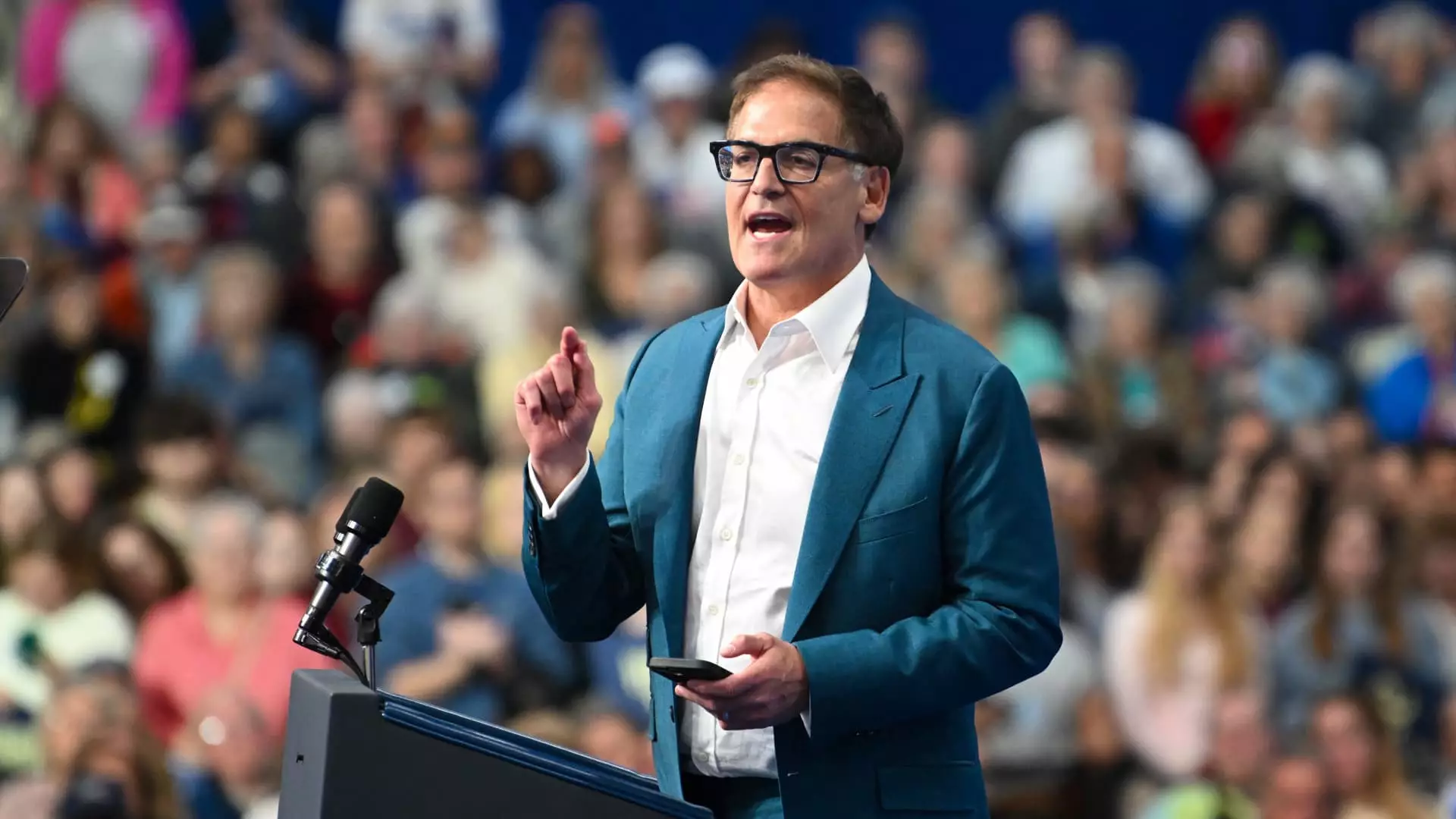Mark Cuban, the billionaire entrepreneur and investor known for his role on “Shark Tank,” recently made headlines with statements regarding his political aspirations, or lack thereof. In an interview on ABC’s “This Week,” Cuban explicitly stated he has no interest in holding any political office or serving in a cabinet role, even as he actively supports Vice President Kamala Harris against former President Donald Trump. His assertion, “I like being a disruptor as an entrepreneur,” underscores his preference for the entrepreneurial sphere over the convoluted world of politics.
While Cuban’s refusal to take on a politician’s role might seem straightforward, it is intriguing when juxtaposed with his earlier comments. Only a month prior, he expressed interest in taking on a prominent government role, publicly advocating for a change in the leadership of the Securities and Exchange Commission (SEC) during an appearance on CNBC’s “Squawk Box.” This dichotomy raises questions about Cuban’s true intentions regarding political engagement.
Indeed, Cuban’s comments regarding a potential SEC appointment reveal a certain degree of inconsistency in his political narrative. He had previously stated, “I told her team, put my name in for the SEC. It needs to change,” expressing his discontent with the current chair, Gary Gensler. This earlier ambition foreshadowed a willingness to involve himself in government—an inclination seemingly retracted in his latest remarks.
Cuban’s evolving stance highlights the complex nature of celebrity involvement in politics. As someone who commands attention and influence, his shifts in rhetoric could either galvanize public opinion or lead to skepticism about his genuine motivations. When a billionaire such as Cuban oscillates between promoting a political candidate and denouncing the political arena, it raises an essential dialogue about the role of affluent figures in shaping political discourse.
Despite his insistence on remaining outside traditional political structures, Cuban remains an active surrogate for Harris, signaling a deepening commitment to her campaign. Cuban’s critiques of existing regulatory frameworks, especially concerning the tech industry, offer insight into his vision for a potential Harris administration. His opposition to figures like Federal Trade Commission Chair Lina Khan reflects a broader ideological approach focused on balancing regulation and innovation.
In his comments to Semafor, where he suggested that Khan’s antitrust initiatives might be more harmful than beneficial, Cuban is not just voicing support for Harris; he is inserting his policy preferences into the conversation. This blend of entrepreneurship with political endorsement positions him as a unique figure capable of influencing the campaign while attempting to distance himself from its typical pitfalls.
Looking ahead, the trajectory of Mark Cuban’s political involvement remains uncertain. His recent statements suggest a desire to act as a commentator rather than a participant, but his influence on key discussions in policy remains substantial. The narrative of a billionaire disinterested in traditional political roles provides a fascinating case study in political strategy and the nuanced relationship between finance and governance. Cuban shapes the political landscape not through office but through advocacy, illustrating how entrepreneurs can disrupt more than just markets—they can also influence politics without ever stepping into the ring.


Leave a Reply